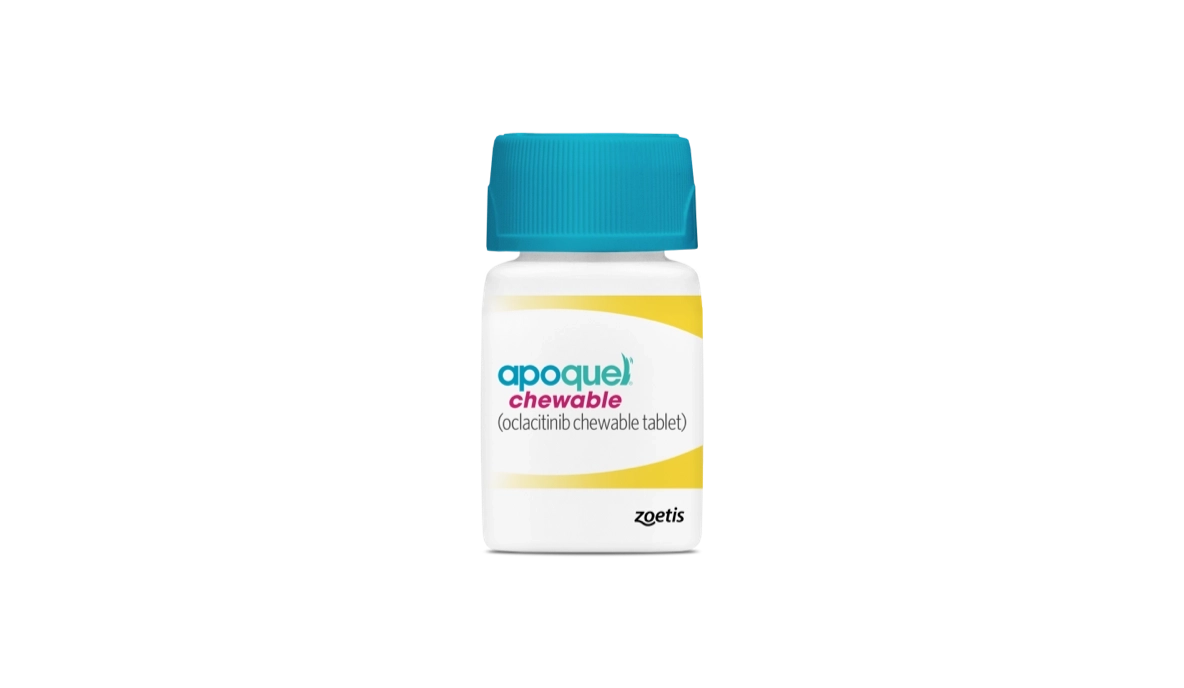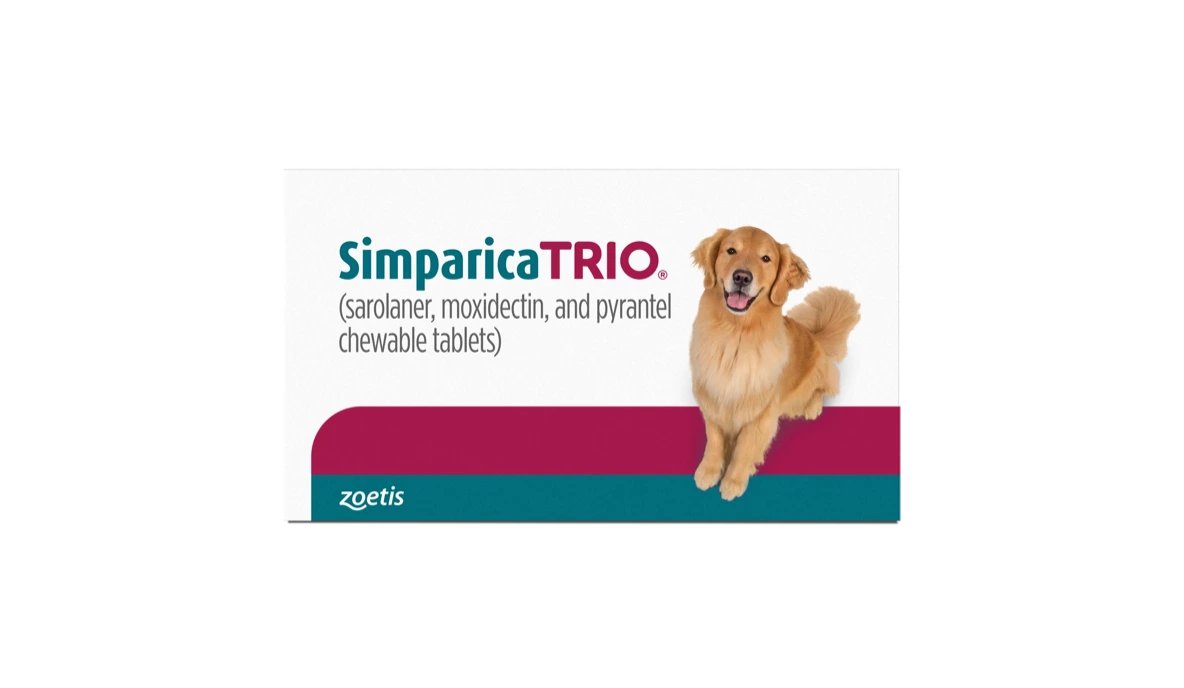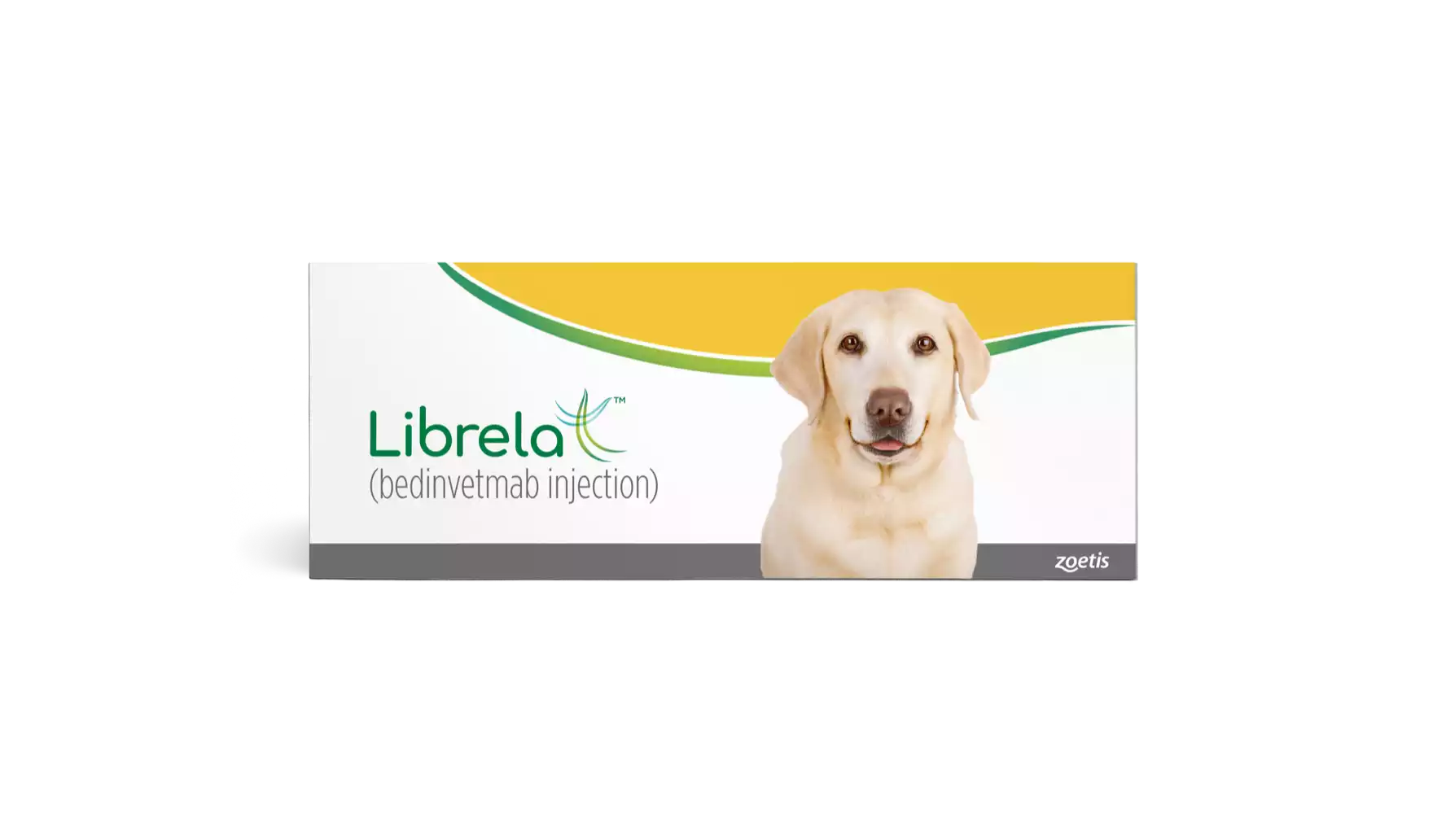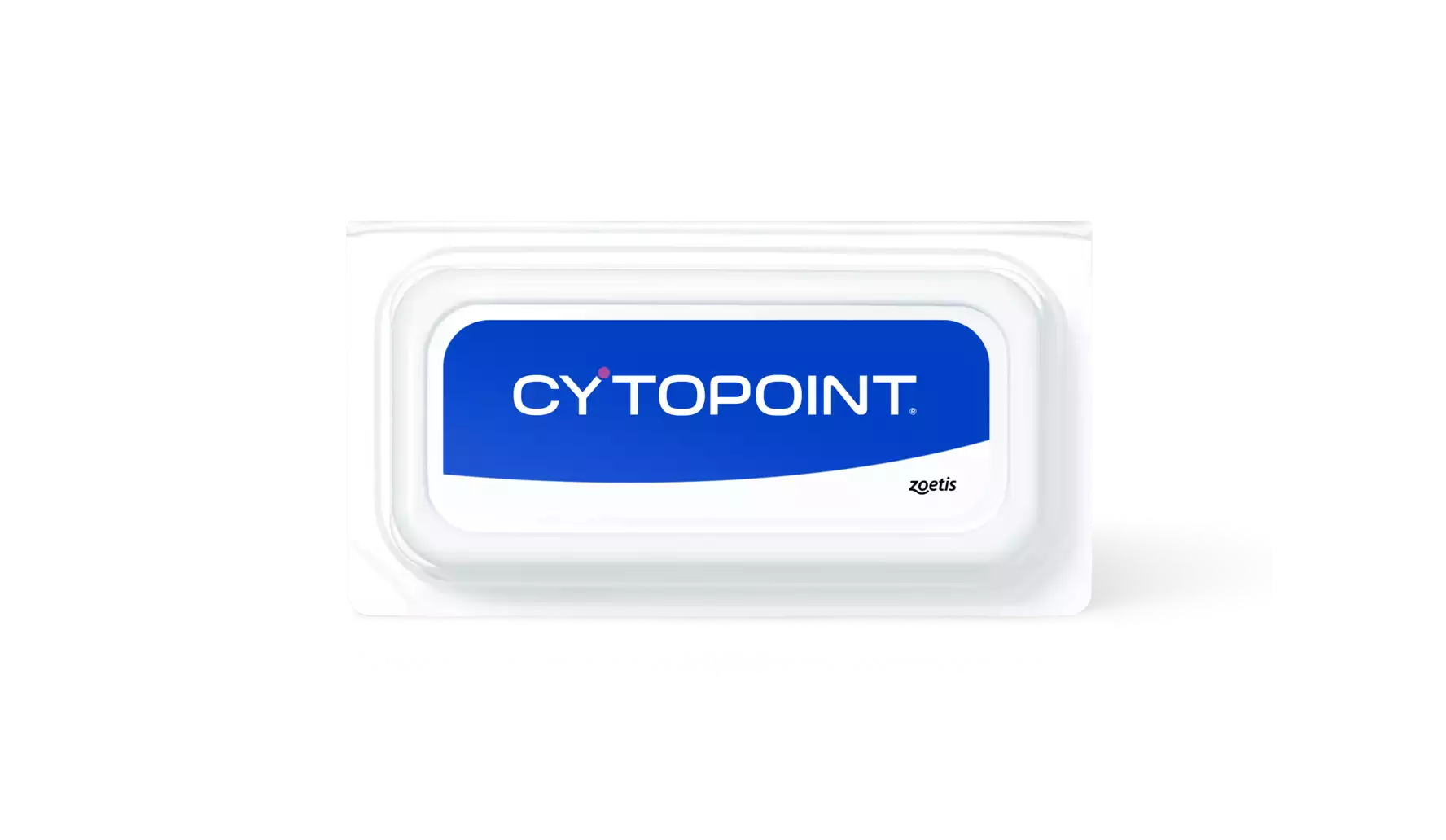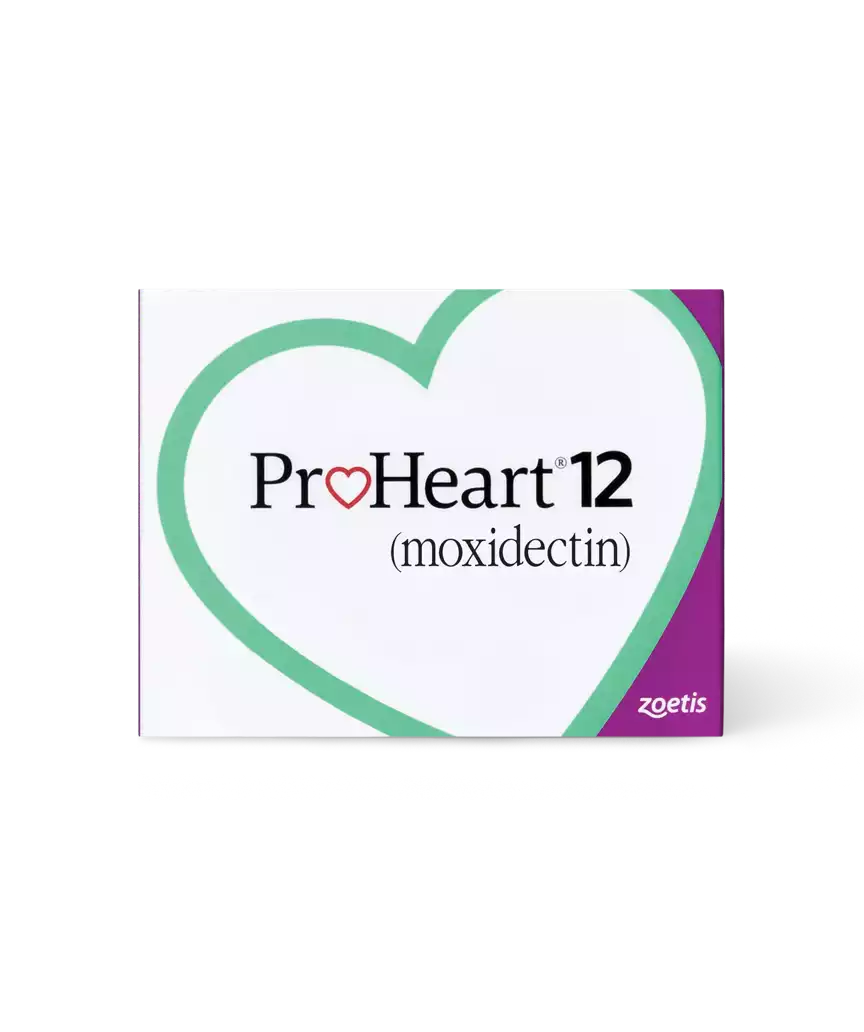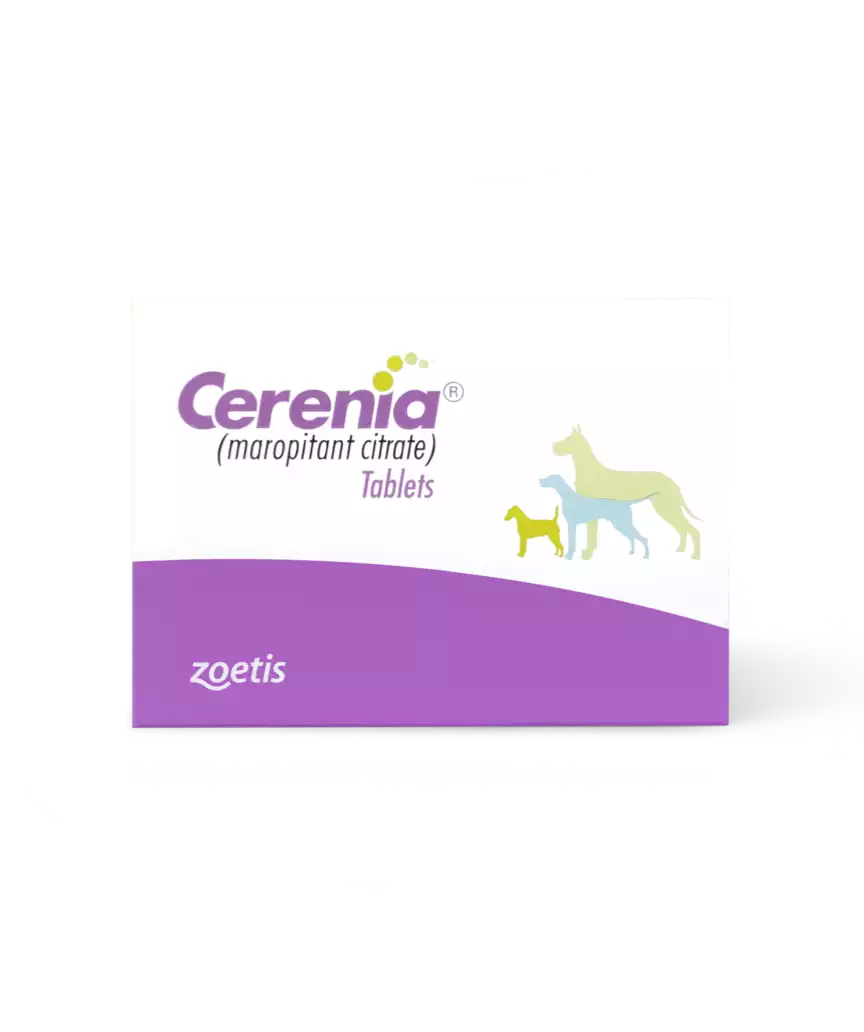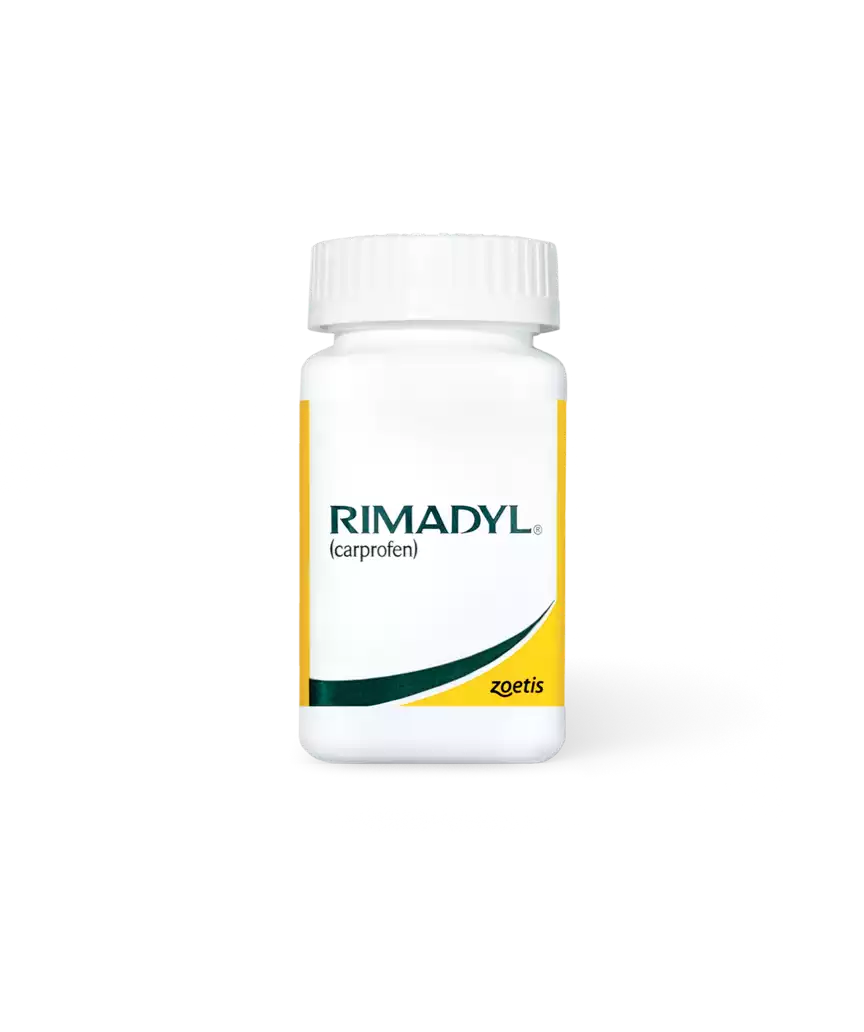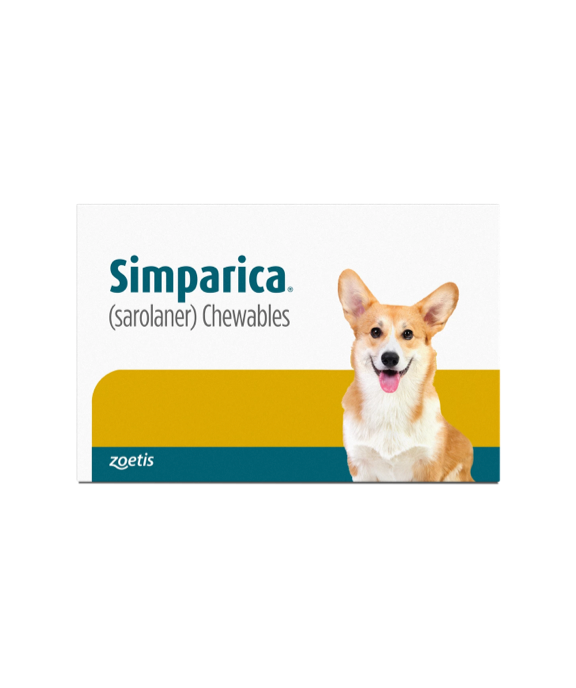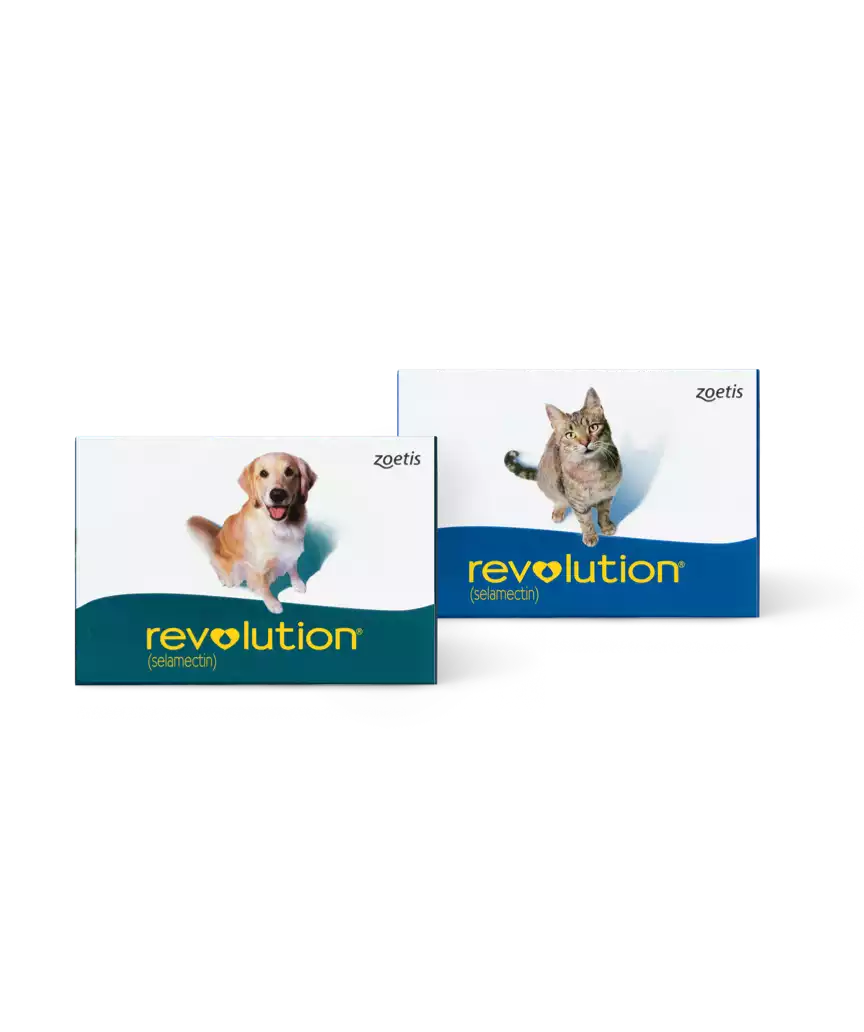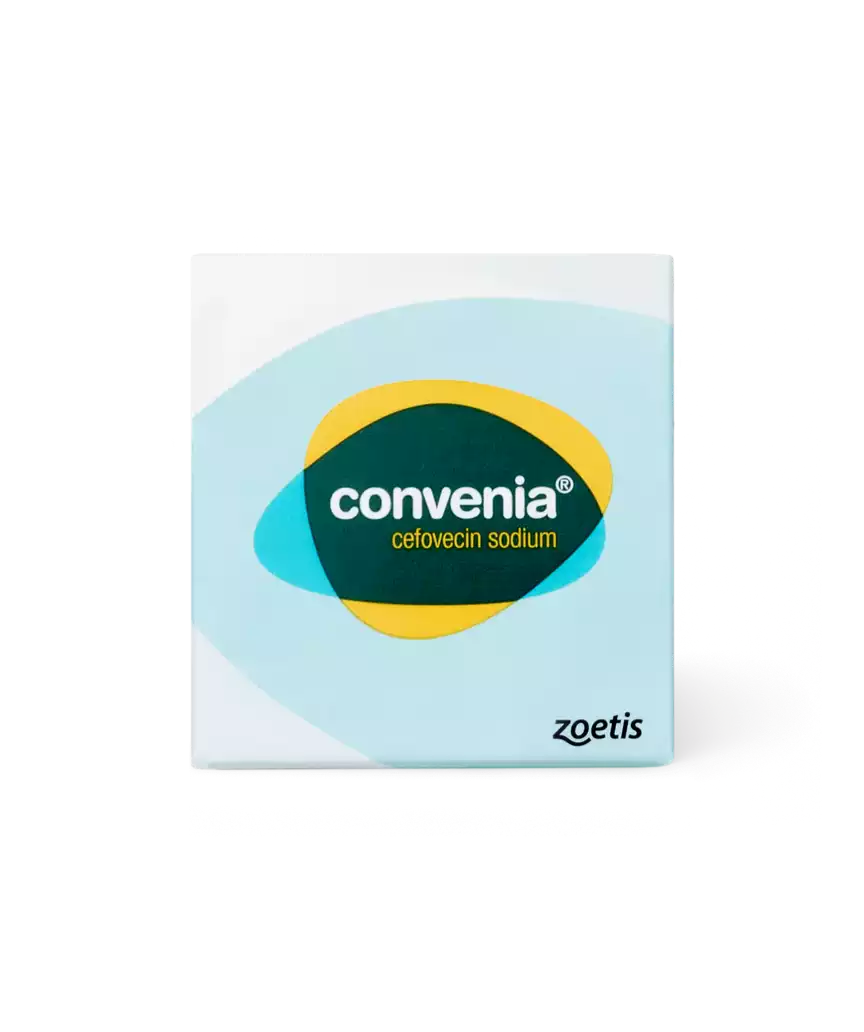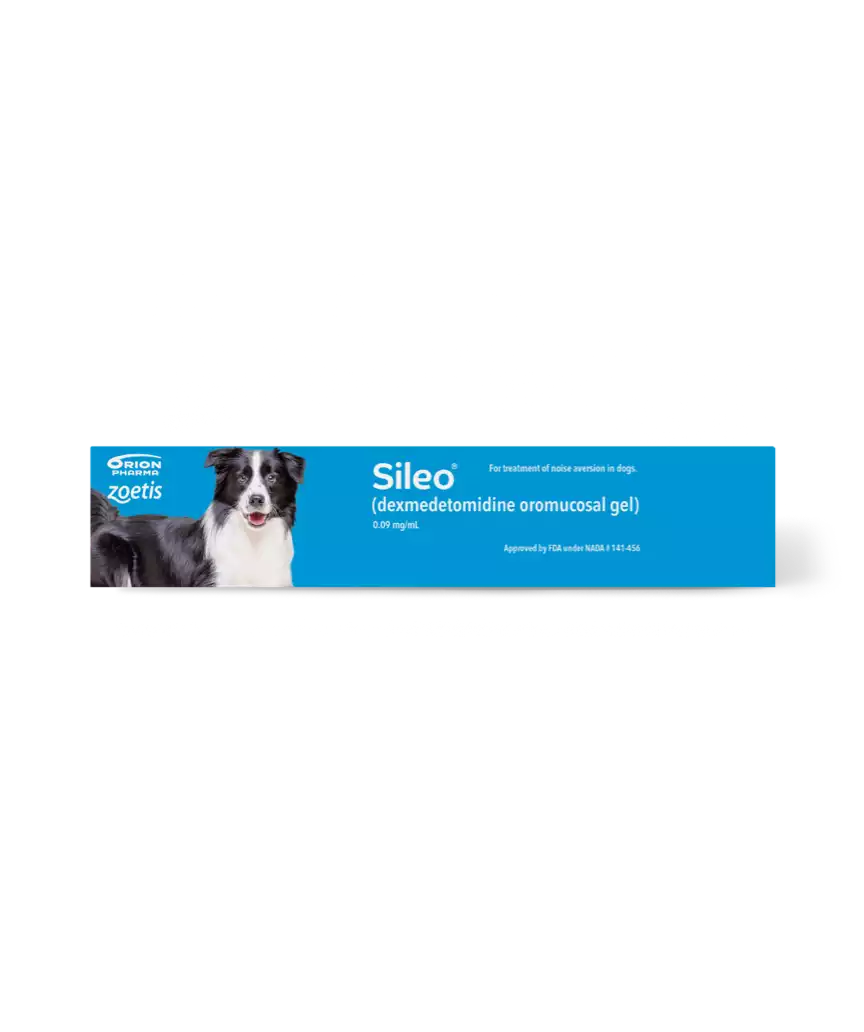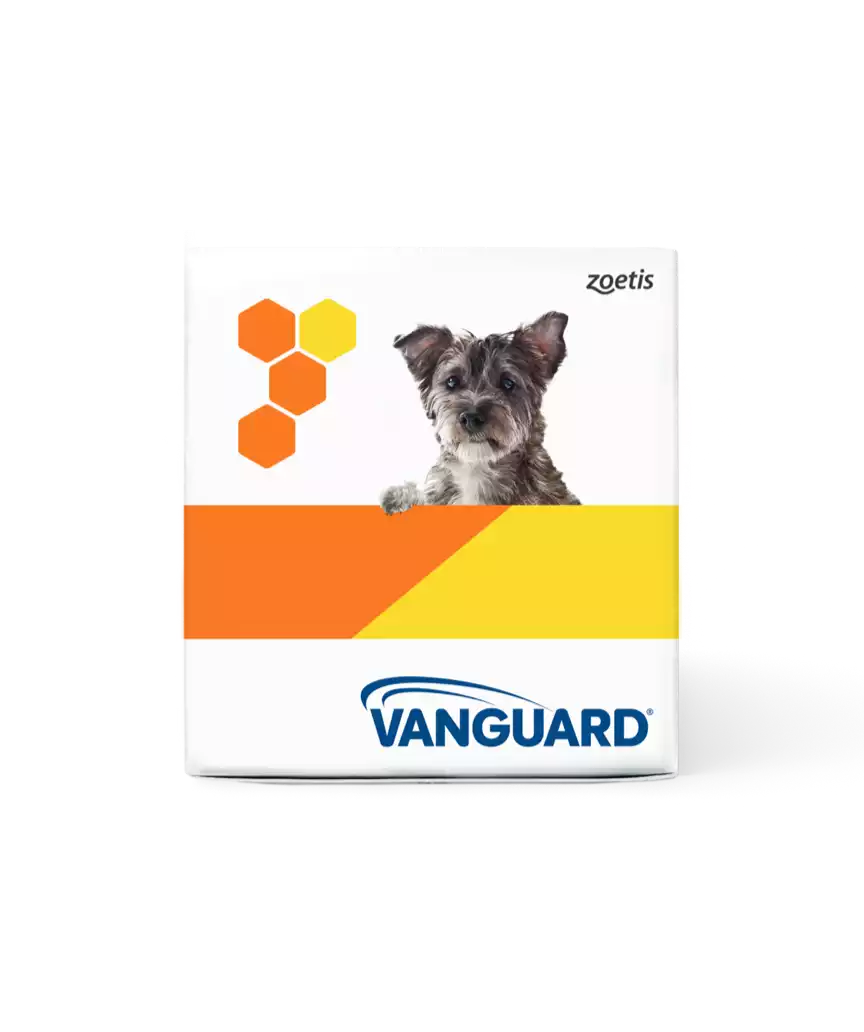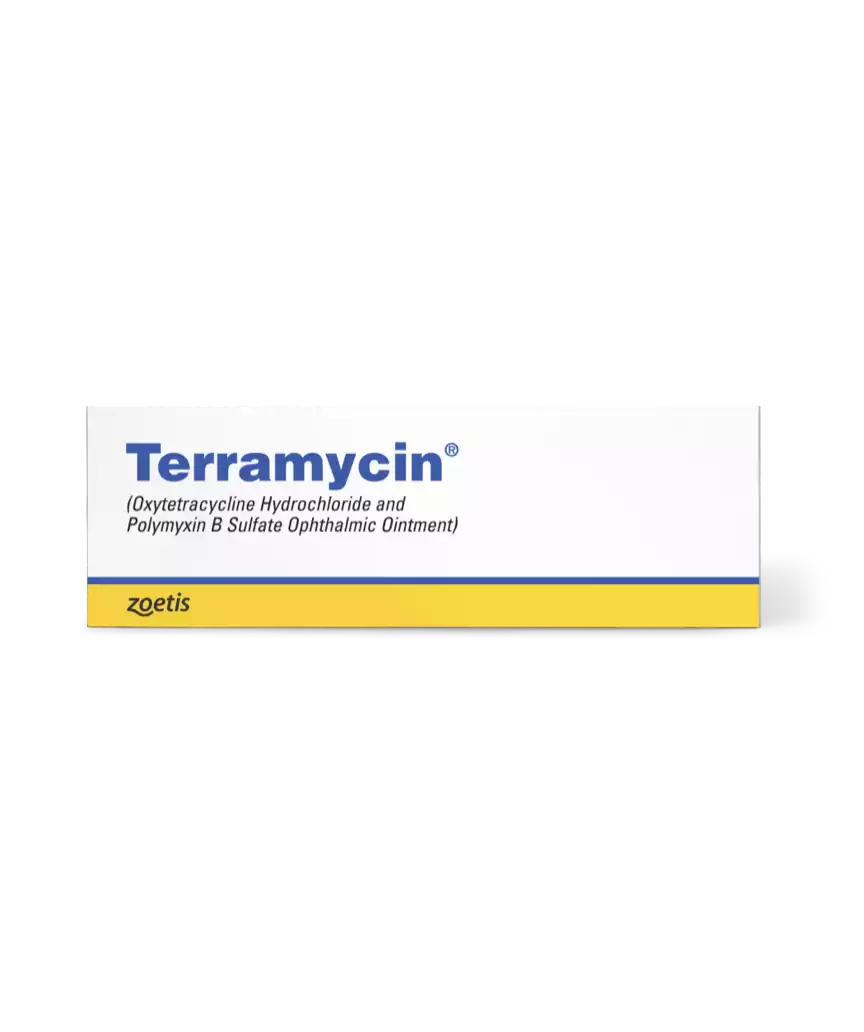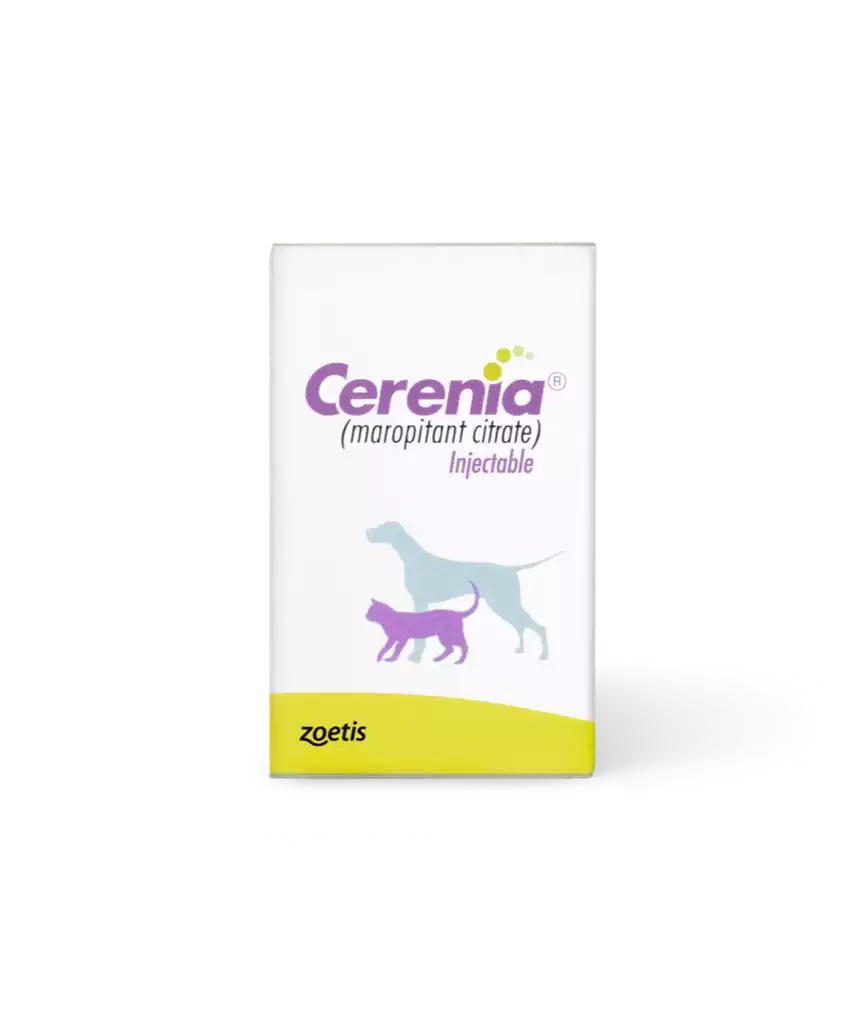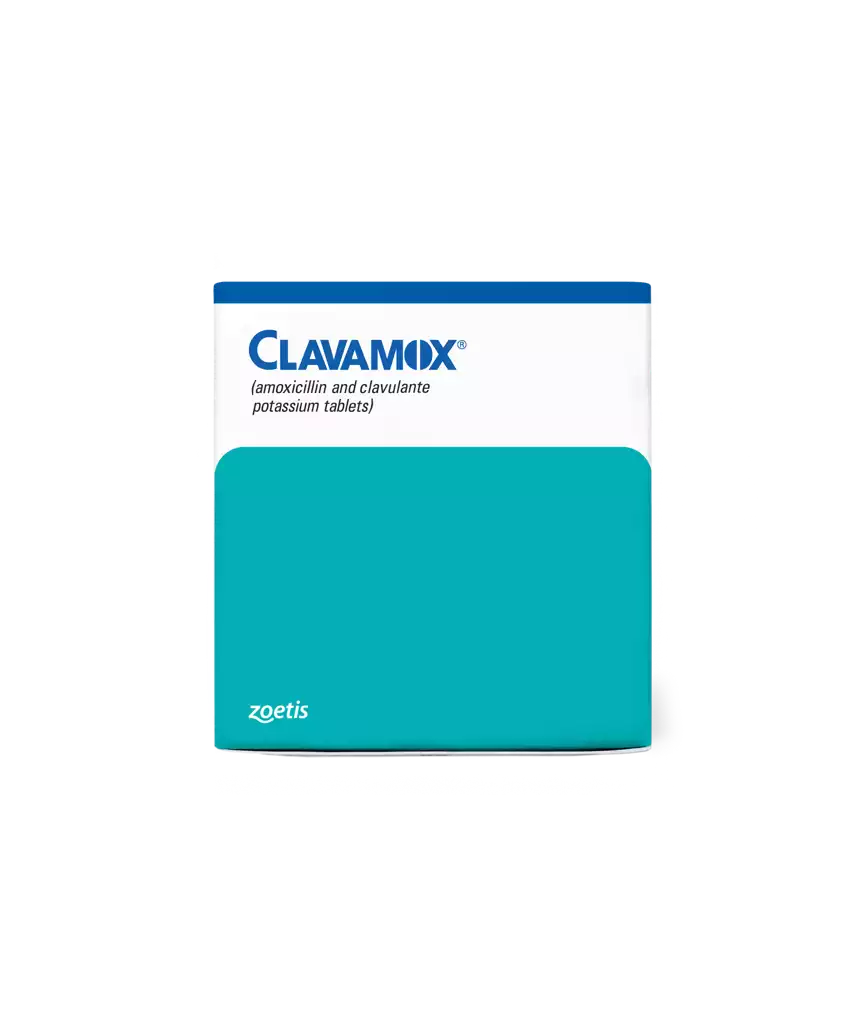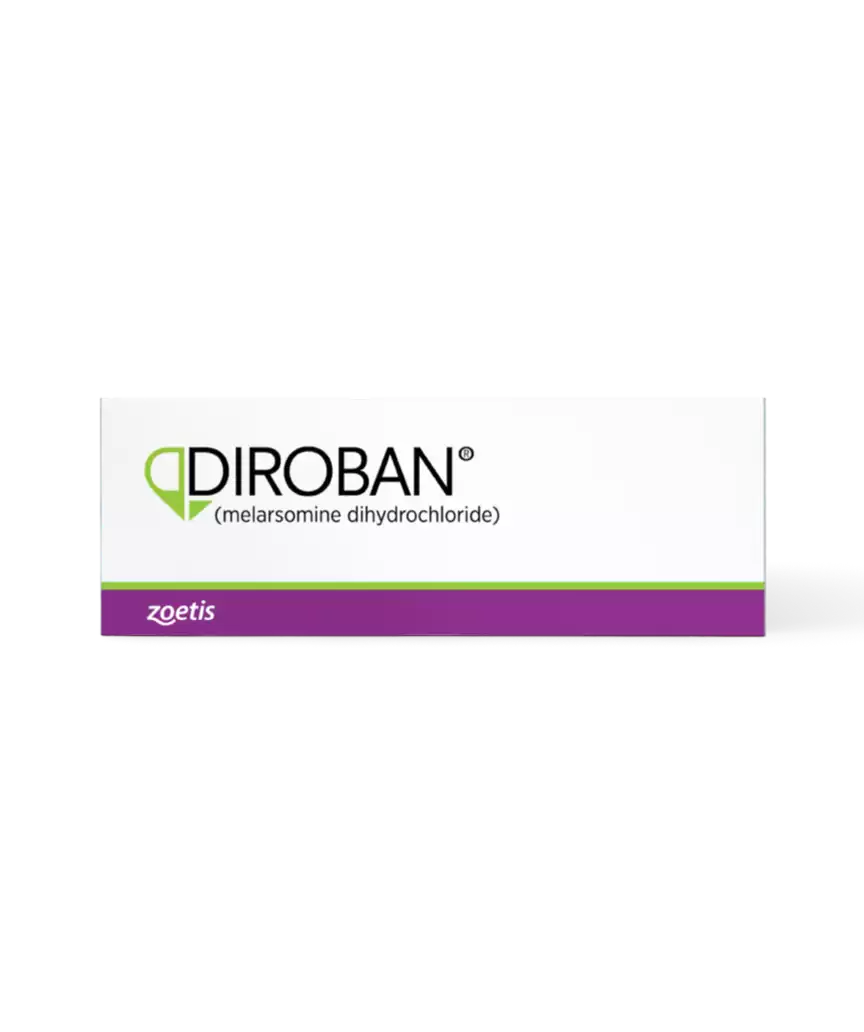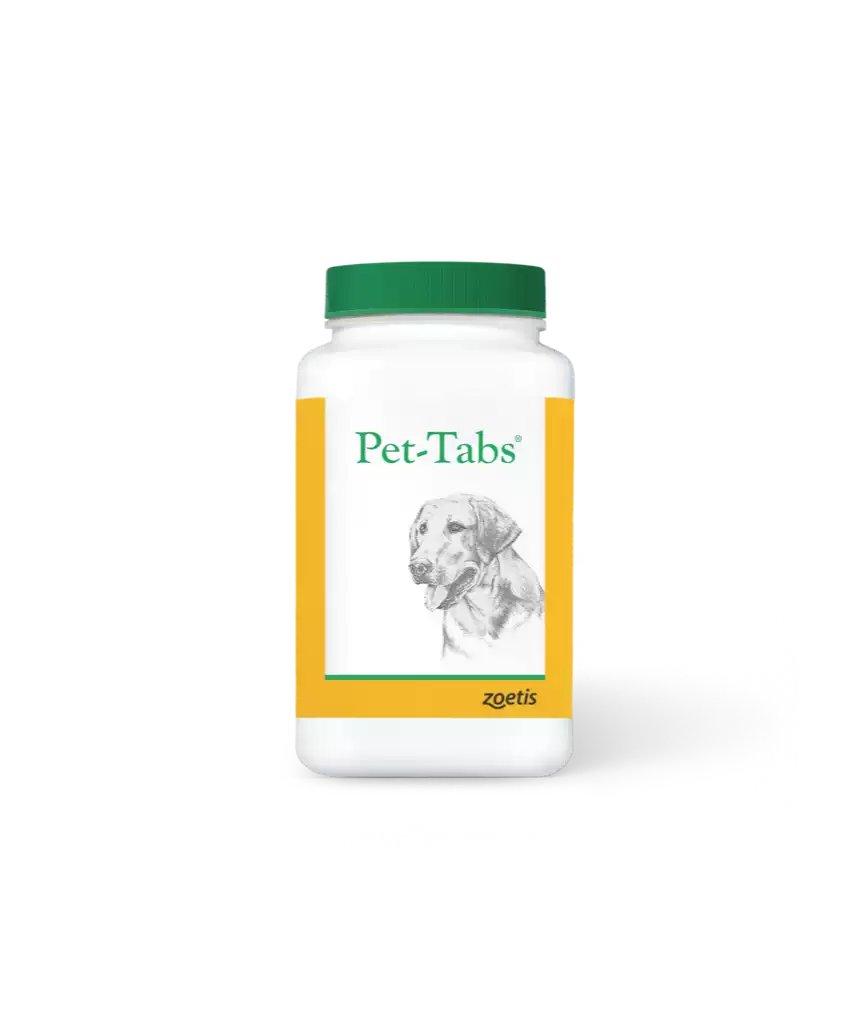

Fetch Points on Purchases!
Join our free pet health Rewards program and spend your Rewards on any products or services at the vet.
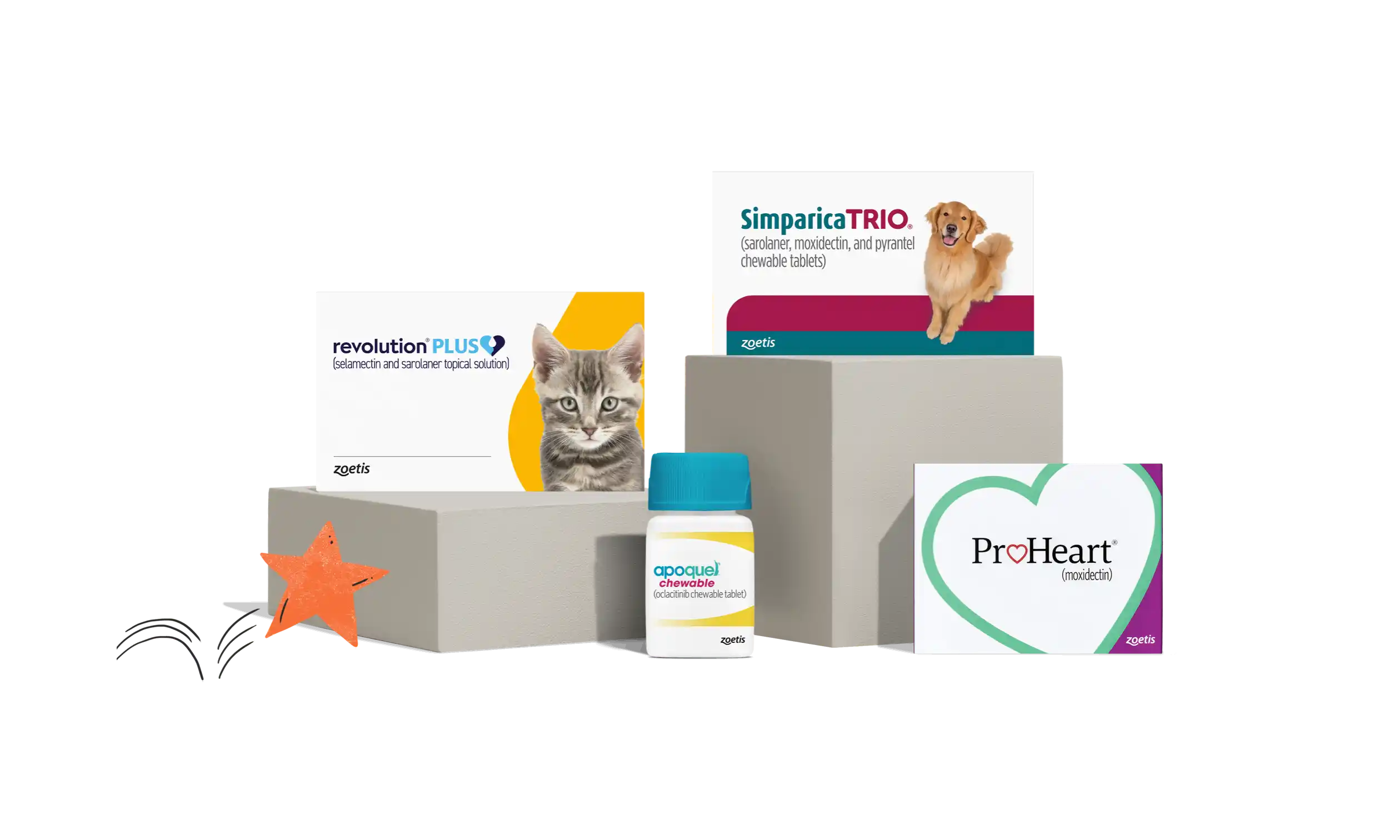
Important Safety Information
Apoquel Chews
Do not use Apoquel Chewable in dogs less than 12 months of age or those with serious infections. Apoquel Chewable may increase the chances of developing serious infections, and may cause existing parasitic skin infestations or pre-existing cancers to get worse. Consider the risks and benefits of treatment in dogs with a history of recurrence of these conditions. New neoplastic conditions (benign and malignant) were observed in clinical studies and post-approval. Apoquel Chewable has not been tested in dogs receiving some medications including some commonly used to treat skin conditions such as corticosteroids and cyclosporines. Do not use in breeding, pregnant, or lactating dogs. Most common side effects are vomiting and diarrhea. Apoquel Chewable has been used safely with many common medications including parasiticides, antibiotics and vaccines. See full Prescribing Information.
Simparica Trio
Use with caution in dogs with a history of seizures. Simparica Trio contains sarolaner, a member of the isoxazoline class which has been associated with neurologic adverse reactions including tremors, ataxia, and seizures in dogs with or without a history of neurologic disorders. The safe use of Simparica Trio has not been evaluated in breeding, pregnant, or lactating dogs. The most frequently reported adverse reactions in clinical trials were vomiting and diarrhea. See full Prescribing Information.
Librela
See the Client Information Sheet for more information about Librela.
ProHeart 12
Use ProHeart 12 in dogs 12 months of age or older. Do not administer to dogs that are sick, debilitated, underweight, have a history of weight loss, or to those previously found to be hypersensitive to the drug. Hypersensitivity reactions may occur in some dogs when ProHeart 12 is administered alone or with vaccines. Anaphylactic and anaphylactoid reactions can result in death and should be treated immediately with the same measures used to treat hypersensitivity reactions to vaccines and other injectable products. The most common reported side effects in clinical trials were vomiting, lethargy, diarrhea, and anorexia. People should avoid inhalation, contact with eyes, or accidental self-injection. Certification is required before veterinarians and staff administer ProHeart 12. See full Prescribing Information.
Cerenia Tablets
Use Cerenia Tablets for acute vomiting in dogs 2 months and older, and for prevention of vomiting due to motion sickness in dogs 4 months and older. Safe use has not been evaluated in dogs with gastrointestinal obstruction, or those that have ingested toxins. Use with caution in dogs with hepatic dysfunction. In people, topical exposure may elicit localized allergic skin reactions, and repeated or prolonged exposure may lead to skin sensitization. See full Prescribing Information.
Rimadyl
As a class, NSAIDS may be associated with gastrointestinal, kidney and liver side effects. These are usually mild, but may be serious. Pet owners should discontinue therapy and contact their veterinarian immediately if side effects occur. Evaluation for pre-existing conditions and regular monitoring are recommended for pets on any medication, including Rimadyl. Use with other NSAIDS or corticosteroids should be avoided. See full Prescribing Information.
Simparica
Simparica is for use only in dogs 6 months of age and older. Simparica, which contains sarolaner, a member of the isoxazoline class, may cause neurologic signs such as tremors, unsteadiness and/or seizures in dogs with or without a history of neurologic disorders. Simparica has not been evaluated in pregnant, breeding, or lactating dogs. The most common adverse reactions in clinical trials were vomiting and diarrhea. See full Prescribing Information.
Revolution
Do not use Revolution on sick, weak, or underweight animals. Use only on cats 8 weeks and older. Use only on dogs 6 weeks and older. Prior to administration, dogs should be tested for heartworms. In cats, side effects may include digestive upset and temporary hair loss at application site with possible inflammation. In people, Revolution may be irritating to skin and eyes. Wash hands after use. See full Prescribing Information.
Convenia
People with known hypersensitivity to penicillin or cephalosporins should avoid exposure to Convenia. Do not use in animals with a history of allergic reactions to penicillins or cephalosporins. Side effects for both dogs and cats include vomiting, diarrhea, decreased appetite/anorexia and lethargy. See full Prescribing Information.
Sileo
Do not use Sileo in dogs with severe cardiovascular disease, respiratory, liver or kidney diseases, or in conditions of shock, severe debilitation, or stress due to extreme heat, cold or fatigue or in dogs hypersensitive to dexmedetomidine or to any of the excipients. Sileo should not be administered in the presence of preexisting hypotension, hypoxia, or bradycardia. Do not use in dogs sedated from previous dosing. Sileo has not been evaluated in dogs younger than 16 weeks of age or in dogs with dental or gingival disease that could have an effect on the absorption of Sileo. Sileo has not been evaluated for use in breeding, pregnant, or lactating dogs or for aversion behaviors to thunderstorms. Transient pale mucous membranes at the site of application may occur with Sileo use. Other uncommon adverse reactions included emesis, drowsiness or sedation. Handlers should avoid direct exposure of Sileo to their skin, eyes or mouth. Always review instructions for use before dispensing and dosing. See full Prescribing Information.
Sileo® is trademark owned by Orion Corporation Orion Pharma Animal Health. It is manufactured by Orion Corporation and distributed by Zoetis under license from Orion Corporation Orion Pharma Animal Health.
Terramycin
Discontinue treatment if severe allergic reactions occur.
Cerenia Injectable
Use Cerenia Injectable for vomiting in cats 4 months and older. Use subcutaneously for acute vomiting in dogs 2 to 4 months of age or either subcutaneously or intravenously in dogs 4 months of age and older. Safe use has not been evaluated in cats and dogs with gastrointestinal obstruction, or those that have ingested toxins. Use with caution in cats and dogs with hepatic dysfunction. Pain and vocalization upon injection is a common side effect. In people, topical exposure may elicit localized allergic skin reactions, and repeated or prolonged exposure may lead to skin sensitization. See full Prescribing Information.
Clavamox
People with known hypersensitivity to penicillin or cephalosporins should avoid exposure to Clavamox. Do not use in animals with a history of allergic reactions to penicillins or cephalosporins. See full Prescribing Information.
Diroban
Diroban is for use in dogs only. Do not use in dogs with very severe (Class 4) heartworm disease. Avoid human exposure. Consult a physician in cases of accidental human exposure by any route. Diroban should be administered by deep intramuscular injection in the lumbar (epaxial) muscles (L3 – L5) only. Do not use in any other muscle group. Do not use intravenously. Care should be taken to avoid superficial injection or leakage. Safety for use in breeding, pregnant, or lactating animals has not been determined. Common side effects include injection site irritation (accompanied by pain, swelling, tenderness and reluctance to move), coughing/gagging, depression/lethargy, anorexia/inappetence, fever, lung congestion, and vomiting. All patients should be monitored during treatment and for up to 24 hours after the last injection. See full Prescribing Information.

